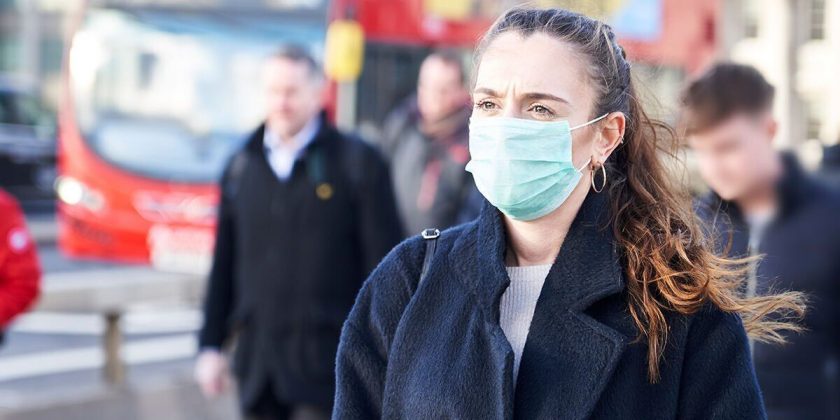Eris: New COVID-19 coronavirus variant detailed
Since the beginning of the COVID-19 pandemic the virus has continued to mutate, bringing new variants that affect the body in different ways.
Just this month the World Health Organisation (WHO) declared the new Eris variant – or EG.5.1 – a strain “of interest” as cases began to rise globally.
And since the variant was first officially classified in the UK in July, case rates nationwide have also soared.
It is now thought to account for around one in seven Covid cases in the region, according to the UK Health Security Agency.
But does this justify a return to the use of face masks? Two experts weighed in on when this type of protection is necessary.
READ MORE First case of highly virulent new Covid variant BA.2.86 detected in UK

Mark Faghy, associate professor in respiratory physiology at the University of Derby, recommended wearing masks in busy public spaces and on public transport, however, he believed the chances of a return to mandatory mask wearing were “slim”.
He said: “COVID-19 is an airborne virus but for transmission from one to another to occur there needs to be people in close proximity to each other.
“Our research at the University of Derby means we recommend that adequate ventilation reduces the risk of infection, so outdoor spaces tend to represent a lower risk.
“Indoor spaces with low-quality ventilation and where people congregate represents an opportunity for the virus to pass from one individual to another.
Don’t miss…
Fever ‘no longer main Covid symptom’ – symptoms to spot as new variants emerge[SYMPTOMS]
New Covid strain BA.X being tracked by WHO as fears mount over upsurge in cases[LATEST]
The people found to be most at risk of Covid – new study as Eris variant emerges[INSIGHT]

We use your sign-up to provide content in ways you’ve consented to and to improve our understanding of you. This may include adverts from us and 3rd parties based on our understanding. You can unsubscribe at any time. More info
“Wearing masks in crowded places like shopping centres and supermarkets, or in places where you are likely to be for a prolonged period with little movement, such as theatres and cinemas, would reduce the risk.
“As we are in the peak holiday season, at Derby we recommend you consider wearing a mask on public transport, where ventilation is low and air is recirculated, which gives the virus the opportunity to spread without any real effort.”
He warned that the Eris strain had been linked to cases of long Covid.
“Whilst there is limited data on the severity of the infection, we know it descends from Omicron which produced a less severe acute infection, but it is linked to a higher prevalence of persistent symptoms in the following months (more commonly known as long Covid),” he said.

“Therefore, there is an argument for taking steps to reduce transmission.
“At the University of Derby, from our work, we are aware that there is a risk of long-term health consequences as we know that one in ten people who have acute COVID-19 have long-term, persistent, and at times disabling symptoms.
“Contrary to some reports, incidences of long Covid can affect anyone and not just those considered ‘high risk’.”
Llinos Connolly, clinical services sister at Benenden Health, advised using masks if you are particularly vulnerable to infection.
“Those who have a weakened immune system, however, may still be worried about the risk of COVID-19 and its symptoms, so wearing a mask in public places or when meeting indoors with people you don’t live with is recommended,” she said.
She added: “It is recommended by the UK Health Agency to wear a mask or face covering when there are more respiratory viruses circulating, such as in the winter months.
“Wearing a mask is also recommended when mixing with other people in crowded and enclosed spaces, especially if someone is at higher risk of becoming seriously unwell from COVID-19, or other respiratory infections.”
Common symptoms of the Eris strain include:
- Sore throat
- Runny nose
- Blocked nose
- Sneezing
- Dry cough
- Headache
- Wet cough
- Hoarse voice
- Muscle aches
- Altered smell.
Source: Read Full Article
